Felon Disenfranchisement
Barring people from the polls because of criminal convictions
On this page, the Prison Policy Initiative has curated all of the research about felon disenfranchisement that we know of. You can also see more of our research on the collateral consequences of incarceration on our Collateral Consequences page. For research on other criminal justice topics, see our Research Library homepage.
- Out of Step: U.S. Policy on Voting Rights in Global Perspective Sentencing Project, June, 2024
- Still Not Free When They Come Home: How Wisconsin's Criminal Legal System Harms Democracy and the Black Community on Milwaukee's North Side Center for Popular Democracy and BLOC, October, 2023
- Increasing Public Safety by Restoring Voting Rights Sentencing Project, April, 2023
- Casting Out from the Inside: Abolishing Felony Disenfranchisement in New York Elizabeth Neuland, December, 2022
-

- Voting From Jail (Working Paper) Anna Harvey and Orion Taylor, October, 2022
- The Reintegration Agenda During Pandemic: Criminal Record Reforms in 2020 Collateral Consequences Resource Center, January, 2021
-
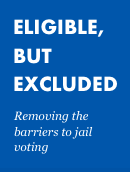
- Locked Out 2020: Estimates of People Denied Voting Rights Due to a Felony Conviction Sentencing Project, October, 2020
- Voting in California Jails: A community toolkit ACLU of Northern California, August, 2020
- Who Must Pay to Regain the Vote? A 50-State Survey Collateral Consequences Resource Center, July, 2020
- Voting in Jails Sentencing Project, May, 2020
- Challenging Jail-Based Disenfranchisement: A Resource Guide for Advocates Campaign Legal Center, December, 2019
- Overcoming Barriers that Prevent Eligible Incarcerated People from Voting in Massachusetts The Emancipation Initiative, October, 2019
- Can't Pay, Can't Vote: A National Survey on the Modern Poll Tax Campaign Legal Center and the Civil Rights Clinic at Georgetown Law, July, 2019
- Felony Disenfranchisement: A Primer Sentencing Project, June, 2019
- Shifting Power: The Impact of Incarceration on Political Representation Brianna Remster and Rory Kramer, April, 2019
- Expanding the Vote: Two Decades of Felony Disenfranchisement Reform Sentencing Project, October, 2018
- Full Human Beings: An argument for incarcerated voter enfranchisement Peoples Policy Project, May, 2018
- 1844 No More New Jersey Institute for Social Justice, December, 2017
- Racism & Felony Disenfranchisement: An Intertwined History Brennan Center for Justice, May, 2017
-

- The Voting Rights of Ex-Felons and Election Outcomes in the United States Tilman Klumpp, Hugo Mialon, Michael Williams, March, 2017
- Felony Disenfranchisement in the Commonwealth of Kentucky League of Women Voters of Kentucky, February, 2017
- Florida: An Outlier in Denying Voting Rights Brennan Center for Justice, December, 2016
- 6 Million Lost Voters: State-Level Estimates of Felony Disenfranchisement, 2016 The Sentencing Project, October, 2016
- Voting Rights of Former Felons ACLU of Nebraska, June, 2016
- How Racial Attitudes and Ideology Affect Political Rights for Felons Du Bois Review, May, 2015
- Value to the Soul: People with Criminal Convictions on the Power of the Vote New Jersey Institute for Social Change, 2015
- Voting Rights Barriers and Discrimination in 21st Century California 2000-2013 Lawyer's Committee for Civil Rights of the San Francisco Bay Area, March, 2014
- Democracy Imprisoned A Review of the Prevalence and Impact of Felony Disenfranchisement Laws in the United States The Sentencing Project et al., September, 2013
- Imprisonment and Disenfranchisement of Disconnected Low-Income Men Urban Institute, August, 2013
- Restoration of Rights Project National Association of Criminal Defense Lawyers, October, 2012
- Felony Disenfranchisement Laws in The United States Sentencing Project, August, 2012
- State-Level Estimates of Felon Disenfranchisement in the United States 2010 Sentencing Project, July, 2012
- Voting Behind Bars An Argument for Voting by Prisoners Sentencing Project, July, 2011
- Voting Behind Bars: An Argument for Voting by Prisoners Sentencing Project, June, 2011
- Expanding the Vote: State Felony Disenfranchisement Reform, 1997-2010 Sentencing Project, October, 2010
-

-
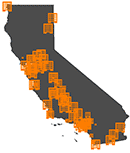
- Importing Constituents Prisoners and Political Clout in Connecticut Prison Policy Initiative, March, 2010
-

- Recommendations to the UN Forum on Minority Issues Human Rights Council Sentencing Project, November, 2009
- Importing Constituents: Prisoners and Political Clout in Massachusetts Prison Policy Initiative, October, 2009
- Expanding the Vote State Felony Disenfranchisement Reform, 1997-2008 Sentencing Project, September, 2009
- Importing Constituents: Prisoners and Political Clout in Oklahoma Prison Policy Initiative, September, 2009
- Report Submitted to Inter-American Commission on Human Rights Sentencing Project, September, 2009
-

- Phantom Constituents in Maine's Regional School Unit 13: How the Census Bureau's outdated method of counting prisoners harms democracy Prison Policy Initiative, January, 2009
- Voting with a Criminal Record How Registration Forms Frustrate Democracy ACLU, October, 2008
-
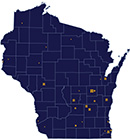
- The Campaign to Restore the Voting Rights of Persons Convicted of a Felony DemocracyWorks, January, 2008
-
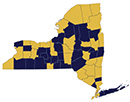
- The Modern-Day Poll Tax How Economic Sanctions Block Access to the Polls Sentencing Project, May, 2007
- Barriers to Democracy A Petition to the Inter-American Commission on Human Rights for a Thematic Hearing on Felony Disenfranchisement Practice Sentencing Project, May, 2007
- Challenges to Felony Disenfranchisement Laws Past, Present, and Future Alabama Law Review, May, 2007
- Felon Disenfranchisement in Alaska and the Voting Rights Act of 1965 Alaska Law Review, December, 2006
- Felony Disenfranchisement in Connecticut Sentencing Project, October, 2006
- A Decade of Reform: Felony Disenfranchisement Policy in the United States Sentencing Project, October, 2006
- Felony Disenfranchisement in the Commonwealth of Kentucky League of Women Voters of Kentucky, October, 2006
- Briefing Sheet on Felon Disenfranchisement Sentencing Project, August, 2006
- Losing the Right to Vote: Perceptions of Permanent Disenfranchisement and the Civil Rights Restoration Application Process in Kentucky Sentencing Project, Elizabeth A. Wahler, April, 2006
- Why the Census Bureau can and must start collecting the home addresses of incarcerated people Prison Policy Initiative, February, 2006
- A 'Crazy-Quilt' of Tiny Pieces: State and Local Administration of American Criminal Disenfranchisement Law Alec Ewald, Sentencing Project, November, 2005
- Voting While Incarcerated: A Tool Kit for Voting Rights Advocates American Civil Liberties Union, September, 2005
- Studies of Voting Behavior and Felony Disenfranchisement Among Individuals in the Criminal Justice System in New York, Connecticut, and Ohio Sentencing Project, September, 2005
-

- Issue Brief on the Impact of Incarceration & Reentry: Rhode Island's Shrinking Black Electorate Rhode Island Right to Vote Campaign, February, 2005
- Barred for Life: Voting Rights Restoration in Permanent Disenfranchisement States Sentencing Project, January, 2005
- Taxation Without Representation: Why Rhode Island needs to restore voting rights to people with felony convictions living in our communities Rhode Island Right to Vote Campaign, 2005
-

-
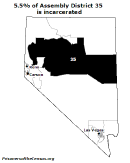
- Triple-Decker Disenfranchisement: First-Person Accounts of Losing the Right to Vote among Poor, Homeless Americans with a Felony Conviction Sentencing Project, November, 2004
-
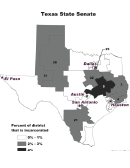
- No Second Chance: People with Criminal Records Denied Access to Public Housing Human Rights Watch, November, 2004
-

-
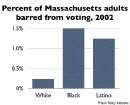
- Purged! How Flawed and Inconsistent Voting Systems Could Deprive Millions of Americans of the Right to Vote ACLU, October, 2004
- The Vanishing Black Electorate: Felony Disenfranchisement In Atlanta, Georgia Sentencing Project, September, 2004
- Political Punishment: The Consequences of Felon Disenfranchisement for Rhode Island Communities Rhode Island Family Life Center, September, 2004
- The 50-State Report on Re-Enfranchisement: A Guide to Restoring Your Right to Vote Lawyers Committee for Civil Rights, September, 2004
- The Disenfranchisement Of The Re-Enfranchised: How Confusion Over Felon Voter Eligibility in Ohio Keeps Qualified Ex-Offender Voters From the Polls Prison Reform Advocacy Center, August, 2004
-
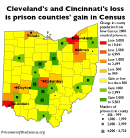
-
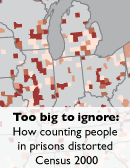
- Felony Disenfranchisement Rates for Women Sentencing Project, March, 2004
- Prisoners Gerrymandering Project Miscounting prisoners undercounts democracy Prison Policy Initiative, March, 2004
- Diminished Voting Power in the Latino Community The Impact of Felony Disenfranchisement Laws in Ten Targeted States MALDEF, December, 2003
- Punishing at the Polls: The Case Against Disenfranchising Citizens with Felony Convictions Alec Ewald, Demos, December, 2003
- Legislative Changes on Felony Disenfranchisement, 1996-2003 Sentencing Project, September, 2003
- Incarceration and Enfranchisement: International Practices, Impact and Recommendations for Reform Brandon Rottinghaus, International Foundation for Election Systems, June, 2003
- Disenfranchised Veterans in the United States Sentencing Project, June, 2003
- Jail-based voter registration campaigns Sentencing Project, May, 2003
- The Partisan Politics of Ex-Felon Disenfranchisement Laws (excerpts) Jason Belmont Conn, May, 2003
- State-Based Advocacy on Felony Disenfranchisement Sentencing Project, February, 2003
- Democratic Contraction: Political Consequences of Felon Disenfranchisement in the United States Profs. Uggen and Manza, November, 2002
- Impact of Recent Legal Changes in Felon Voting Rights in Five States Profs Uggen and Manza, October, 2002
- Summary of Changes to State Felon Disenfranchisement Laws, 1865-2003 Profs. Uggen and Manza, September, 2002
- Re-Enfranchisement! A guide for individual restoration of voting rights in states that permanently disenfranchise former felons Advancement Project, September, 2002
-
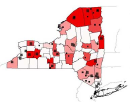
- Justice Denied: How felony disenfranchisement laws undermine democracy Americans for Democratic Action Education Fund, March, 2002
- Criminal Disenfranchisement in Minnesota Lawyers Committee for Civil Rights Under Law, January, 2002
- Regaining the Vote: An Assessment of Activity Relating to Felon Disenfranchisement Laws Sentencing Project, January, 2000
- Losing the Vote '98 Sentencing Project & Human Rights Watch, October, 1998
- Felon Disenfranchisement: Pennsylvania's Sinister Face of Vote Dilution Jon E. Yount, March, 1998
- Civil Disabilities of Convicted Felons: A State-by-State Survey Office of the Pardon Attorney, October, 1996
Pages Updated On: 10-Jan-2025 - 17:47:31
Links Engine 2.0 By: Gossamer Threads Inc.



